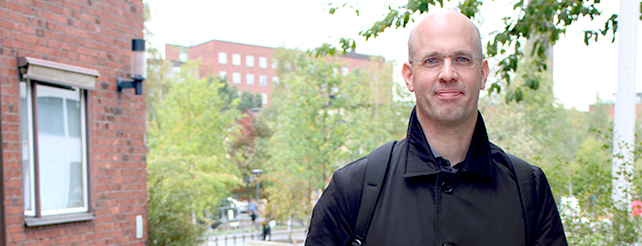KTH Pedagogical Prize to Gunnar Tibert

Hello Gunnar Tibert, Department of Aeronautical and Vehicle Engineering, you and Anna-Karin Högfeldt, ITM School, have won the KTH Pedagogical Prize 2018.
– I am surprised and pleased. It is nice that my work in undergraduate education has been highlighted.
Why do you think you were awarded this year?
– I think it's my job to create a positive climate and single-managed transparent procedures for basic education issues, both at school and at KTH. Mårten Olsson, former Director of the Engineering physics programme, pointed out at a basic education meeting several years ago that "there is a difference in doing things right and doing the right things". I think of Mårten's wise words in most contexts: If we do this way, do we really work with the right things or are we just doing this to make things right - in someone else's eyes? As another colleague, Anne Håkansson at the EECS school, recently said in conjunction with a leadership course: "At KTH there are many routines and instructions that are easily accessible but hard to manage." Mårtens and Anne's wise words capture a good way how we constantly have to think about everything that is associated with quality work in, among other things, undergraduate education.
In parallel with your research in space technology, you have been working as a teacher for sixteen years and having the role as Director of First and Second Cycle Education since five years, what inspire you to teach?
– My motivation when it comes to teaching is that I want to be able to provide the right tools for students, who when they are complete engineers, will solve the challenges of the future. I am inspired by the opportunity to work close to the students and learn from them while they learn from me. For many years, I very often arrange oral examinations.
Does your teaching make any sense to your own research?
– There is an important aspect of trying to explain complicated things in as easy a way as possible. I am thinking of the "three-minute-thesis" competition, where you have to explain your research in just three minutes. I think researchers can inspire students only through their sincere dedication.
What do you think would be optimal situation concerning the educational development work at KTH?
– A dream scenario would be to be able to offer individually tailored courses, a palette of different learning methods and examination methods in the same course that would support the work of widening the student recruitment at KTH. There are some initiatives at KTH that currently work in this direction.
Text: Sofia Nyström

